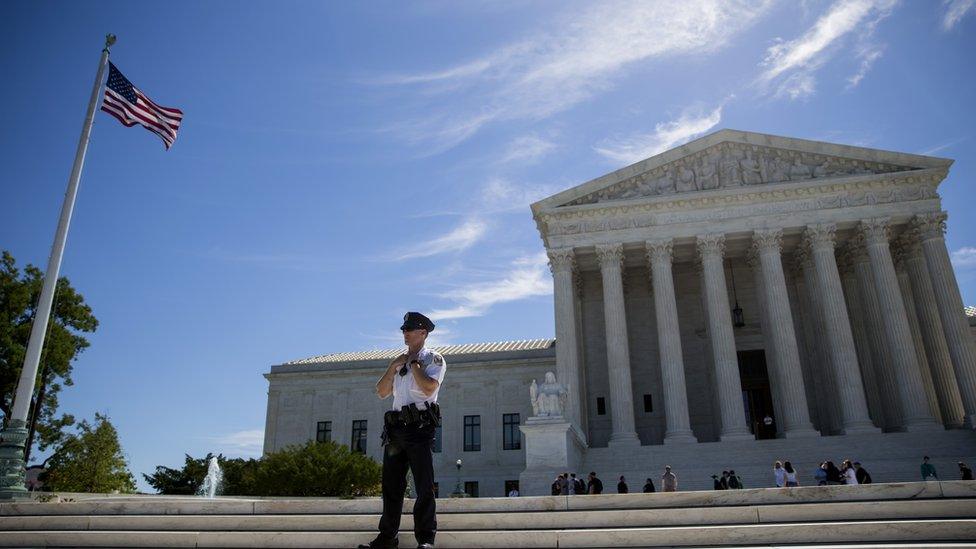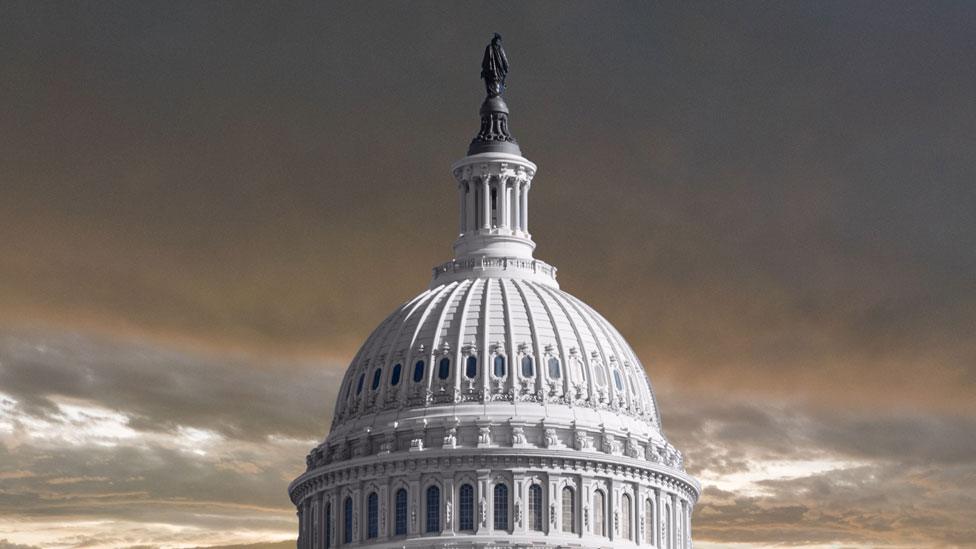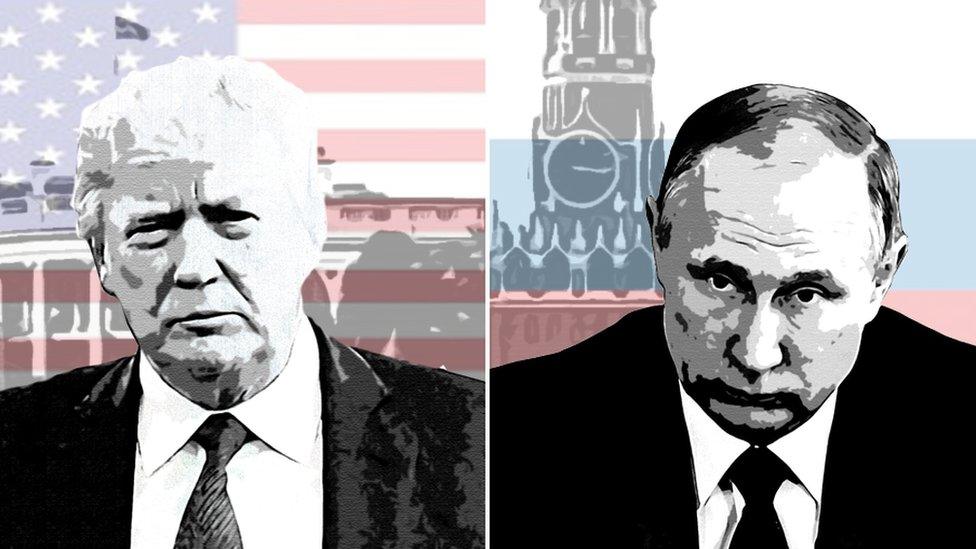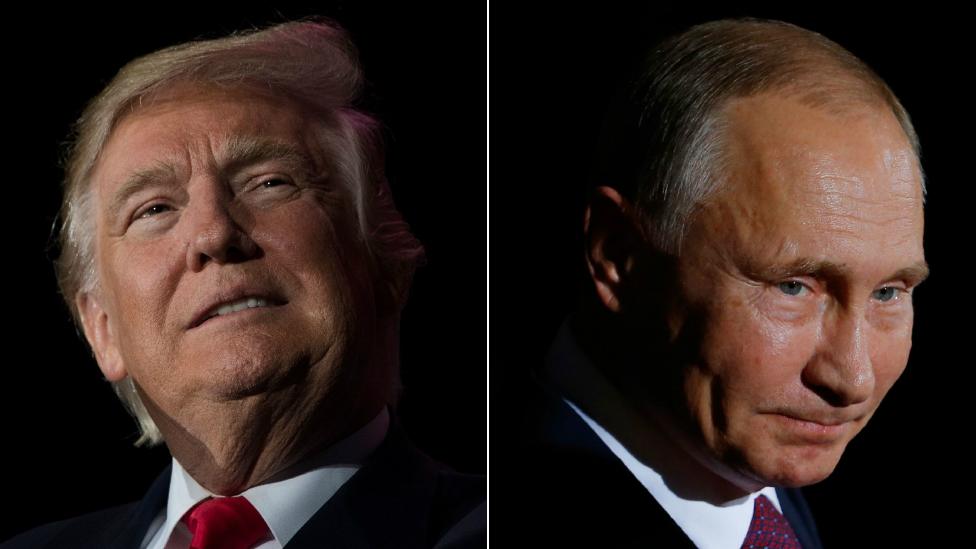US legalese: A guide to special counsels, grand juries and subpoenas
- Published

The special counsel inquiry looking at alleged Russian meddling in the 2016 US election in favour of Donald Trump has dominated the Trump presidency.
But as more and more people become ensnared by the investigation, the more legally complex the front-page stories will get.
Here's a glossary of common US legal terms to help you navigate the news out of Washington.
Subpoena
A command under a court's authority for a witness to appear to give testimony or present documents. A person that does not comply with a subpoena can be charged with contempt of court.
Grand jury
A group of 16-23 citizens who consider evidence of criminal allegations and decide if there is probable cause to believe a suspect committed a crime. They have the power to issue subpoenas and ultimately decide if criminal charges should be brought and a suspect put on trial. Grand jury proceedings are kept confidential. Grand juries are very different to trial juries - they do not play any role in terms of deciding if a suspect is guilty or not guilty.
Indictment
A formal accusation against someone suspected of a felony (serious crime) after a Grand Jury finds probable cause.
'Pleading the fifth'
This is the right of someone to protect themselves from self-incrimination by refusing to testify or produce information. The phrase, known to many from legal dramas and courtroom scenes in films, refers to the Fifth Amendment of the US Constitution, which says that no-one "shall be compelled in any criminal case to be a witness against himself".
Affidavit
A written statement which is sworn to be true.
To be arraigned
When a criminal defendant is told of the charges against them in court and asked if they plead guilty or not guilty.
US attorney
A lawyer appointed by the president to serve for a term of four years as the chief federal law enforcement officer within a judicial district. There are 93 across the US and they represent the federal government - prosecuting and defending cases.
District attorney
A prosecutor at the level of a county or designated district within a state. The official may be appointed or elected.
Impeachment
A process whereby the US president can be removed from office by Congress. The House of Representatives can vote for articles of impeachment with a simple majority. The US Senate then tries the accused, but a two-thirds majority vote is needed to convict and remove a president from office. The two-thirds hurdle is significant - two US presidents have been impeached by the House (Andrew Johnson in 1868 and Bill Clinton in 1998) but both were acquitted by the Senate and so not removed from office.
Special counsel
A position which can be appointed by the attorney general when he or she decides that a criminal investigation of someone or something would pose a conflict of interest for the Department of Justice and that it would be in the public interest for a special counsel outside the department to lead that investigation.
Read more: What is Robert Mueller doing?
Obstruction of justice
Any interference with a judicial or congressional proceeding. It is commonly applied in cases where someone has tampered with evidence, intimidated a witness, or failed to report a crime, but the statute requires there to be a corrupt intent behind the action. Of the three presidents who have faced impeachment proceedings, two have been accused of obstruction of justice: Richard Nixon in 1974 and Bill Clinton in 2000.
Deposition
An oral statement made under oath by a witness - the purpose being for parties to know all the facts about a case before trial.
- Published17 May 2017

- Published3 April 2018

- Published25 March 2019

- Published24 July 2019

- Published3 May 2018
